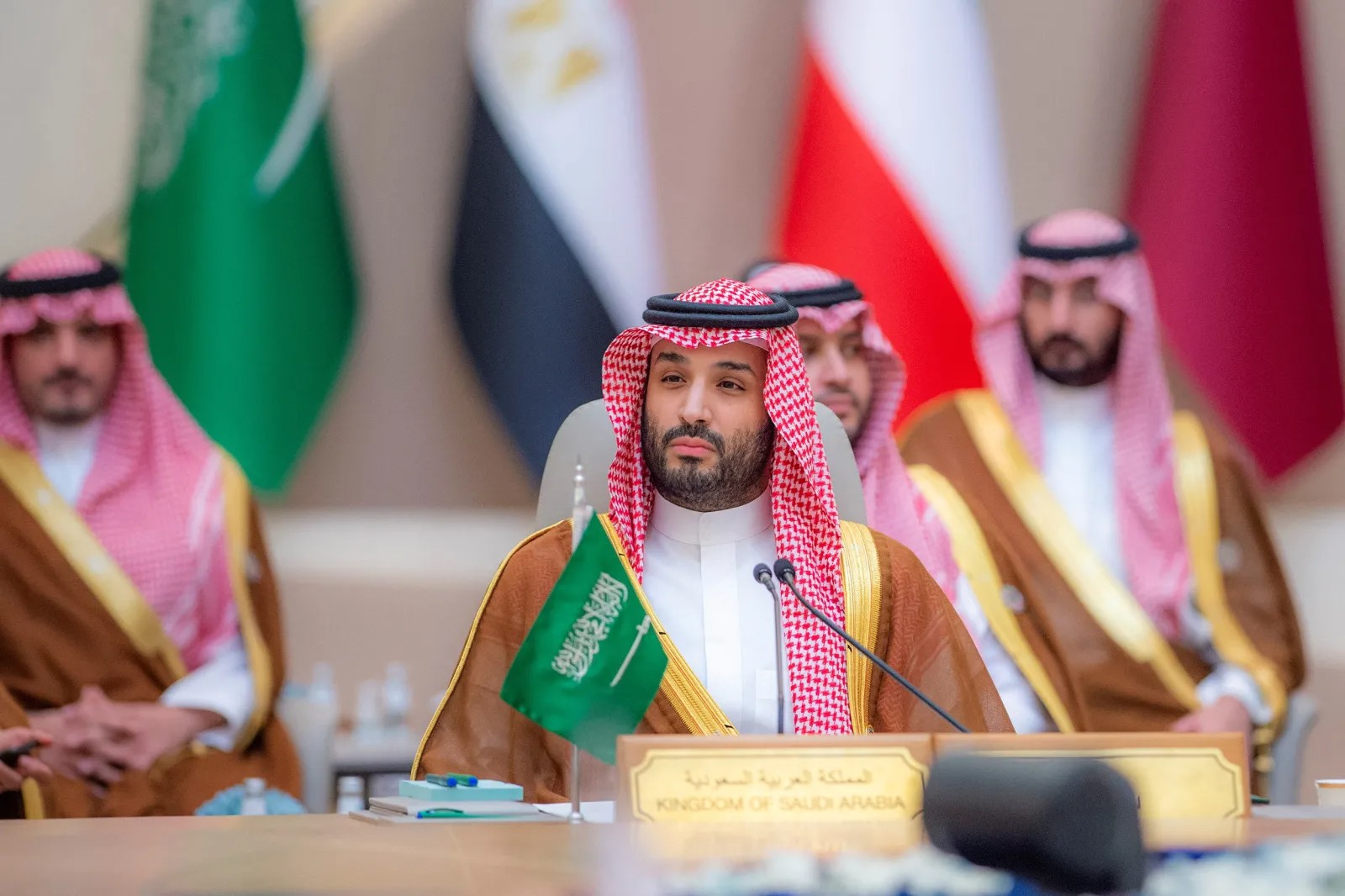The BRICS alliance could gain control of the majority of the world's oil and gas trade by including Saudi Arabia and the United Arab Emirates, which could lead to a shift away from the USD and the de-dollarization of the oil economy.
The BRICS group is reportedly inviting Saudi Arabia and Egypt to join, with over 40 countries expressing interest and an expanded BRICS potentially accounting for 44% of the global economy by 2040.
Saudi Arabia's robust diversification efforts, driven by Vision 2030 strategies, have resulted in a surge of business activities and economic growth, despite worldwide economic uncertainty and concerns over inflation and geopolitical tensions. The country's economic diversification journey has led to the opening of new sectors and advancements in fields such as tourism, media, finance, and clean energy, making it a regional economic and technology hub. Saudi Arabia's continued focus on sectors like mining, metals, hospitality, tourism, and clean energy, along with fiscal consolidation efforts and revenue-enhancing measures, are key to sustaining its economic diversification model.
Saudi Arabia experienced a sharp decline in its foreign reserves, with a drop of over $16 billion last month, marking the largest decrease since the negative oil prices during the pandemic as the country invested in US stocks using its savings.
Italy and Saudi Arabia are discussing a potential Saudi investment in Rome's new strategic fund, as the two countries sign a deal to strengthen economic ties, particularly in energy, and boost investments in areas like sustainability and supply chains.
Saudi Arabia plans to invest up to $25 billion in Pakistan over the next few years, focusing on sectors such as mining, agriculture, and information technology, in an effort to increase foreign direct investment and aid Pakistan's economic recovery.
Chief of Army Staff (COAS) General Asim Munir assured the business community that efforts will be made to bring foreign investment to revive Pakistan's economy, with a $25 billion investment discussed with Saudi Arabia in various sectors, including IT, minerals, agriculture, and defense, according to Federation of Pakistan Chambers of Commerce & Industry (FPCCI) President Irfan Iqbal Sheikh.
Pakistan's civilian and military leaderships are optimistic that Gulf states, particularly Saudi Arabia, will invest billions of dollars in the country to alleviate its cost-of-living crisis, but doubts remain about the feasibility of these projections and the need for economic reforms and stability.
Saudi Arabia's Crown Prince Mohammed bin Salman plans to invest billions of dollars in mining metals, such as zinc and copper, in order to transform the country into a metals hub and reduce its reliance on oil.
Analysts predict that Saudi Arabia may face an economic contraction in 2023 due to its decision to extend crude production cuts, highlighting the nation's heavy reliance on oil, while a large dividend from Saudi Aramco may provide some cushion for public finances.
Saudi Arabia's membership in the G20 reflects its increasing global economic importance, particularly in energy exports, international trade, and financial resources, as well as its efforts in promoting transparency and economic stability.
Pakistan needs to address concerns related to incentives, coordination, and remittance in order to secure Saudi investments in copper, mineral, refinery, and solar projects worth $25-30 billion, including the construction of a $10-12 billion refinery in Hub or Gwadar.
The United States has pledged $40 million in new investment for Pakistan at the USAID 'Invest in Pakistan' conference, with four diaspora partners committing a total of $44 million in new investment.
Saudi Arabia is undergoing a major transformation through its Vision 2030 plan, led by Crown Prince Mohammed Bin Salman, aiming to diversify its economy and secure its place on the global stage; despite controversies and challenges, the country's economy is booming, heavily reliant on oil, and is making significant investments at home and abroad.
The United States and Saudi Arabia are in discussions to secure African metals valued at $15 billion in order to support their energy transitions, with a state-backed Saudi venture expected to buy mining assets in countries such as the Democratic Republic of Congo, Guinea, and Namibia, allowing U.S. companies the right to purchase part of the production.
Leaders from Brazil, Russia, India, China and South Africa recently announced that Saudi Arabia, along with five other nations, would be invited to join the BRICS organization, potentially causing fears of economic catastrophe in the U.S., although experts argue that this scenario is highly unlikely.
Saudi Arabia's sovereign wealth fund made a $2 billion investment in Jared Kushner's firm, Affinity Partners, after Crown Prince Mohammed bin Salman overruled objections from fund managers, according to a rare interview with the crown prince.
